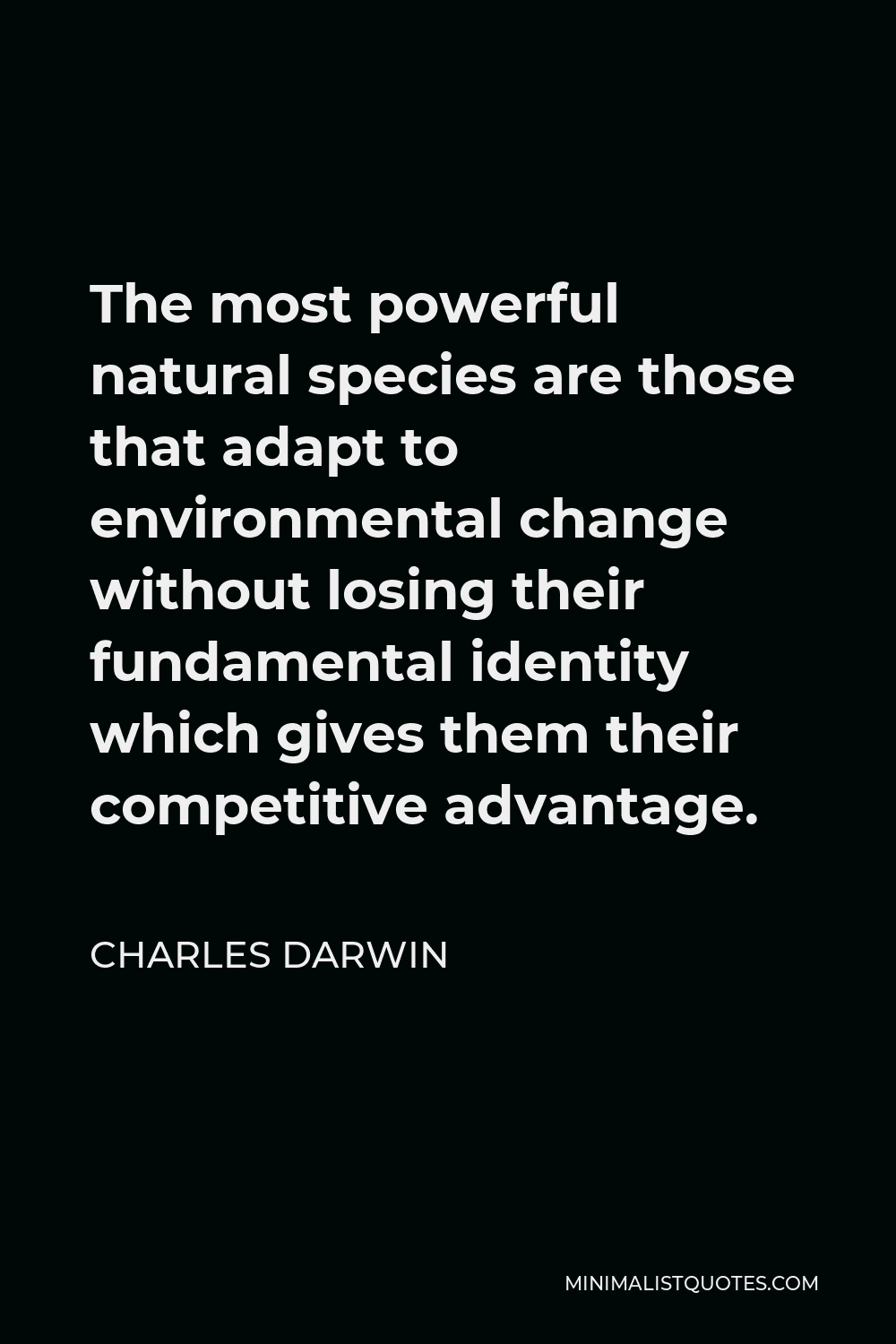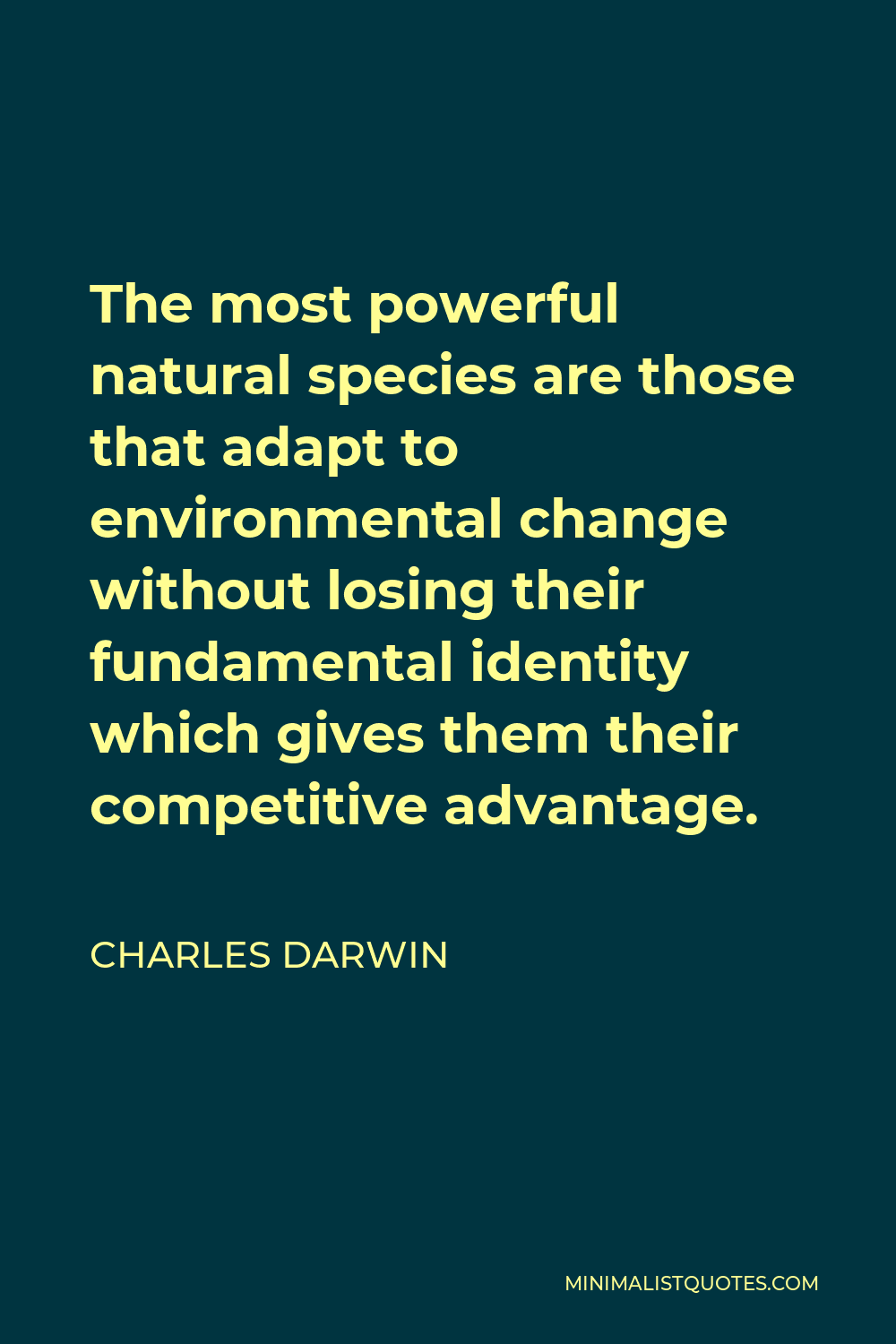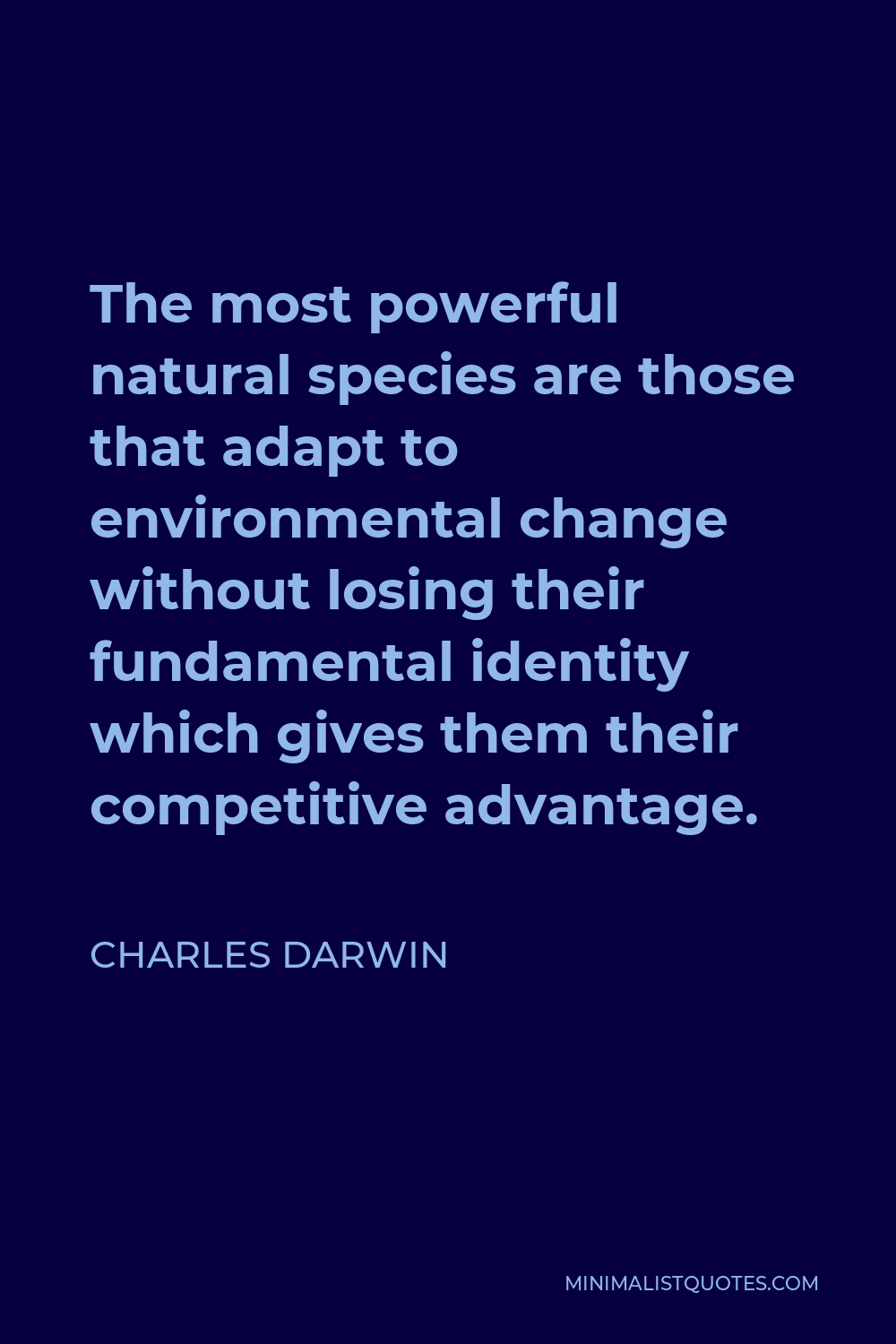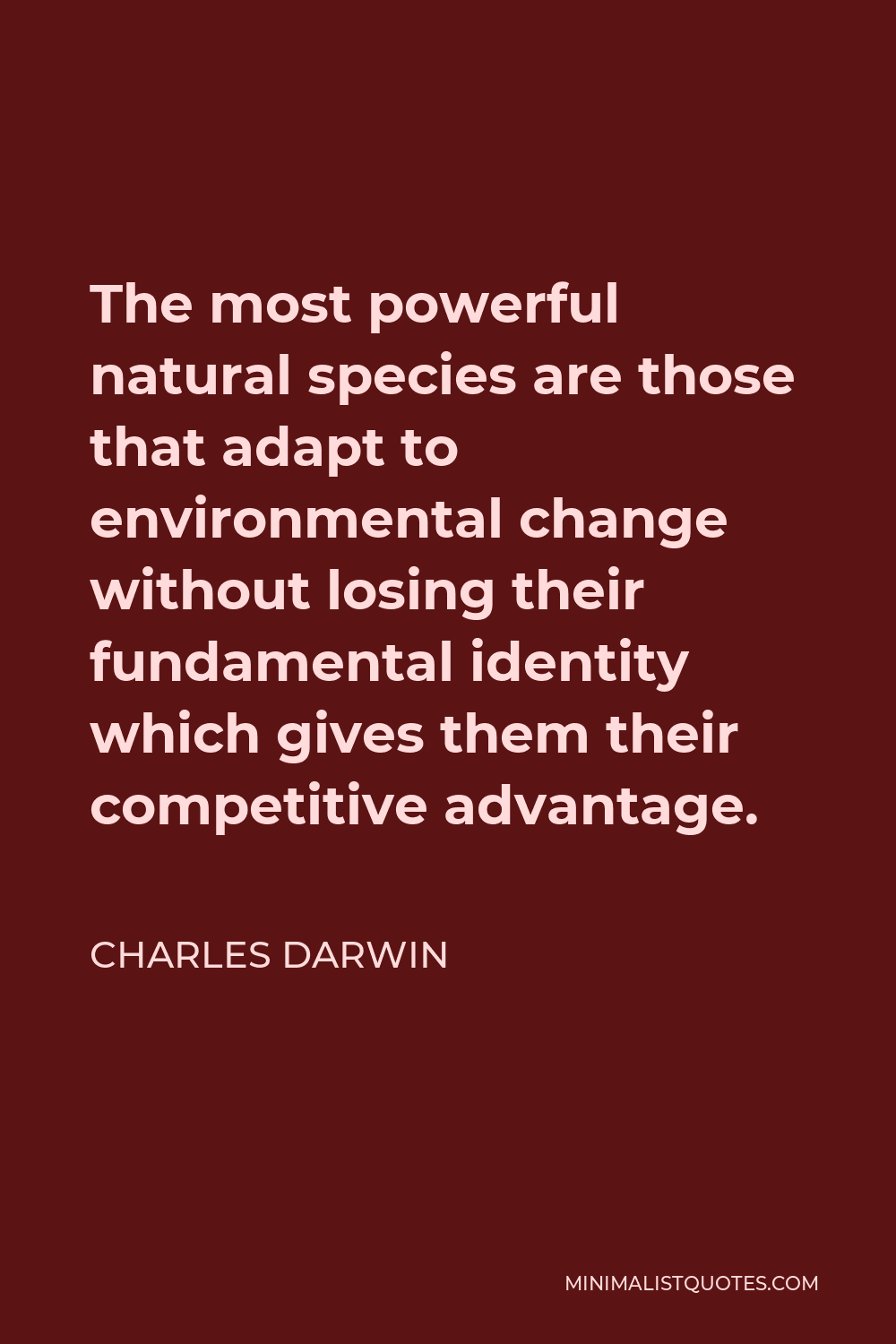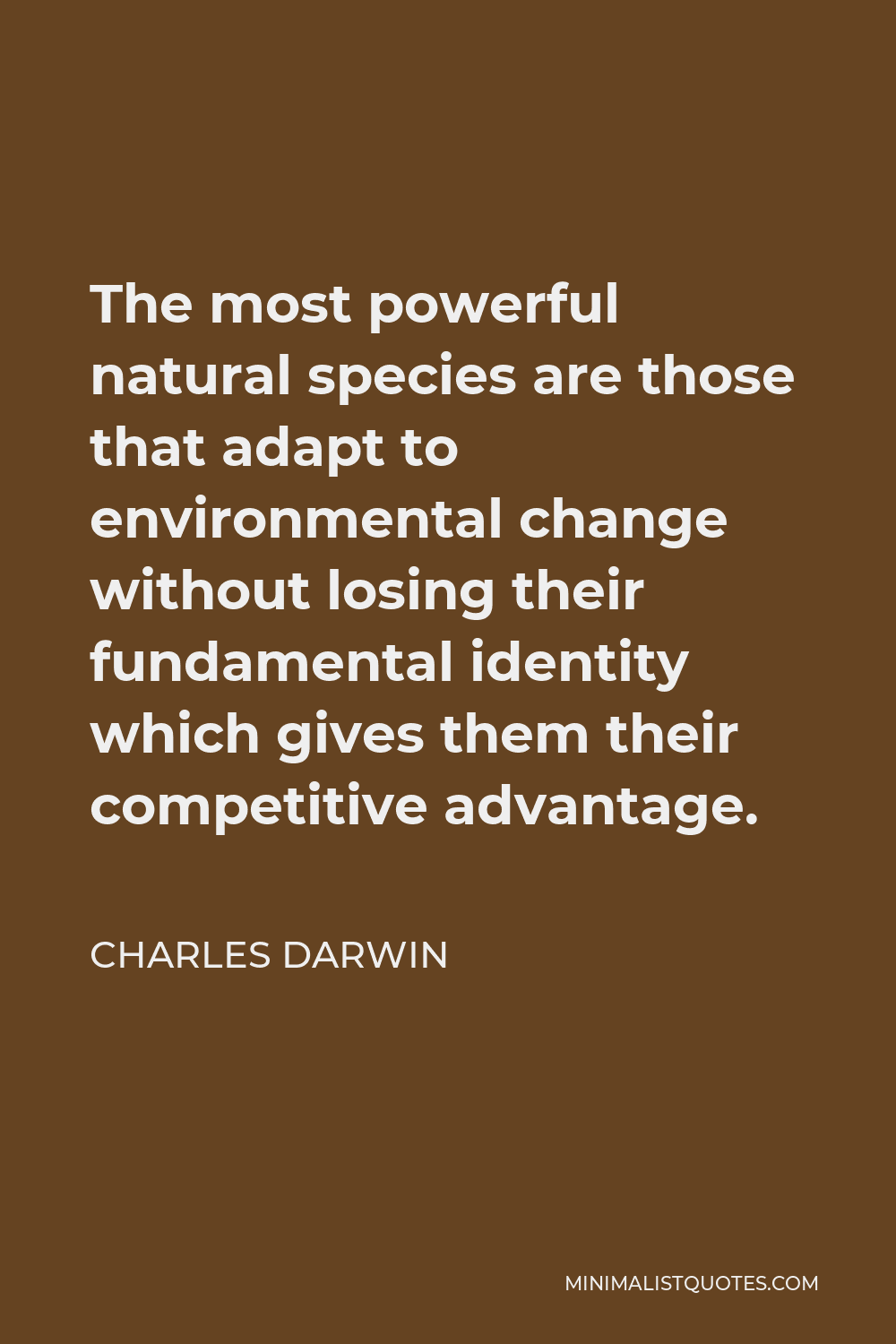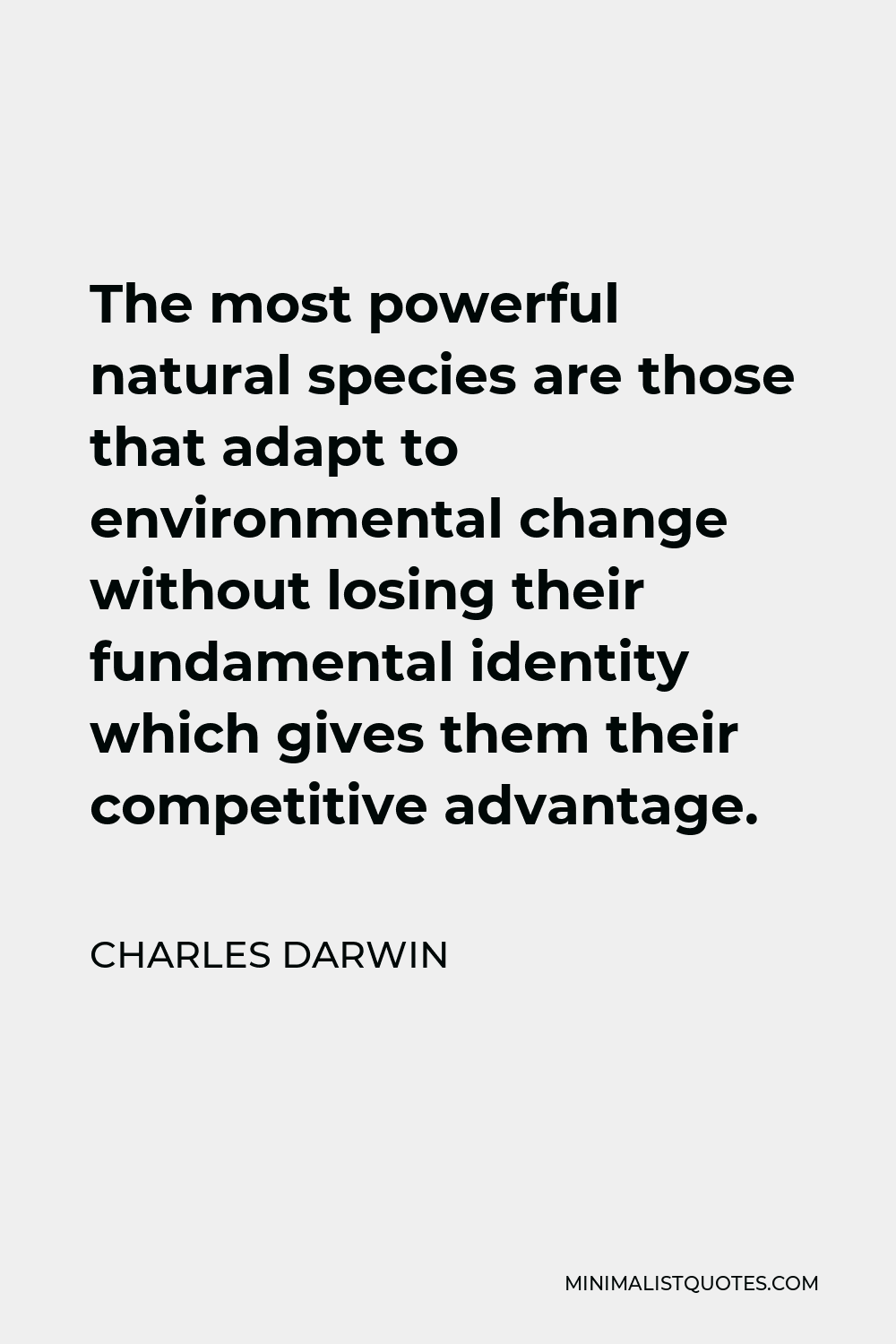There is a grandeur in this view of life, from so simple a beginning endless forms most beautiful are being evolved
CHARLES DARWINThe most powerful natural species are those that adapt to environmental change without losing their fundamental identity which gives them their competitive advantage.
More Charles Darwin Quotes
-





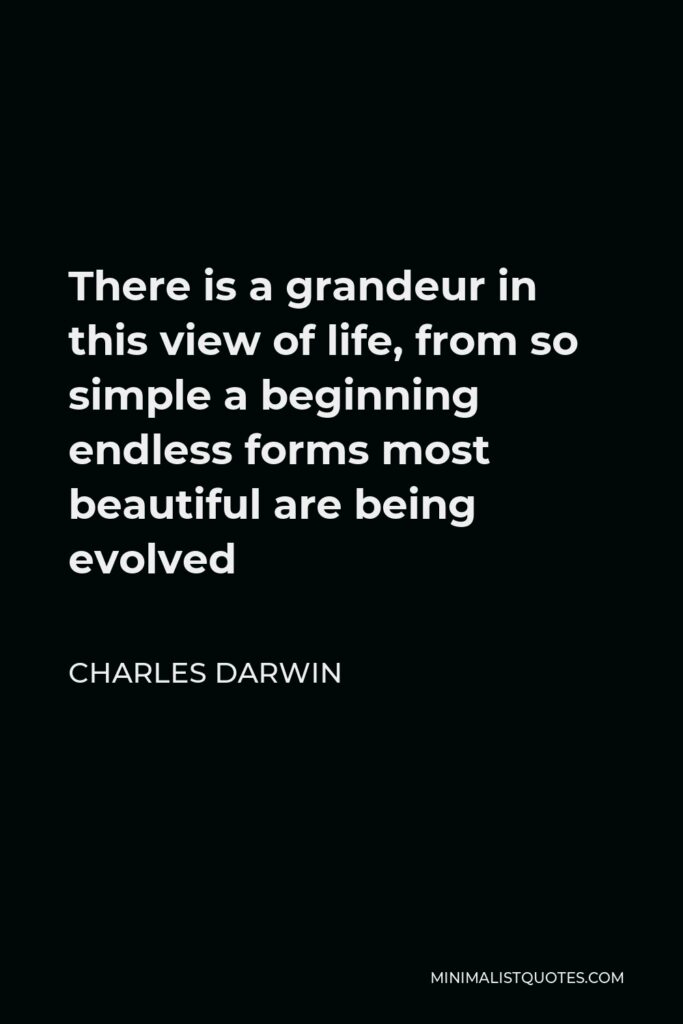

-





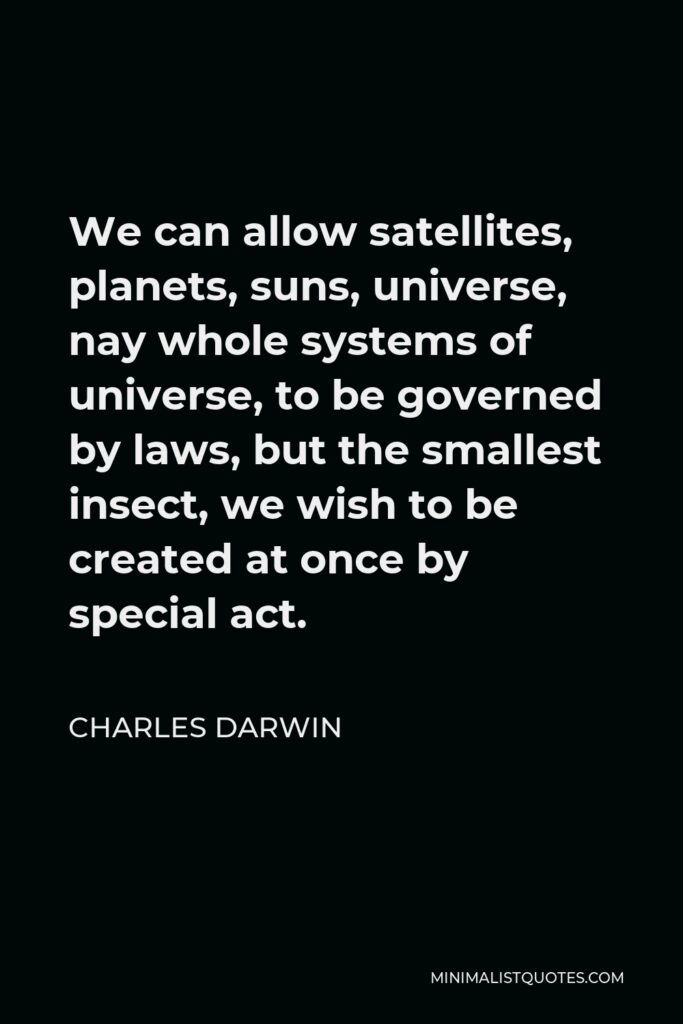

We can allow satellites, planets, suns, universe, nay whole systems of universe, to be governed by laws, but the smallest insect, we wish to be created at once by special act.
CHARLES DARWIN -





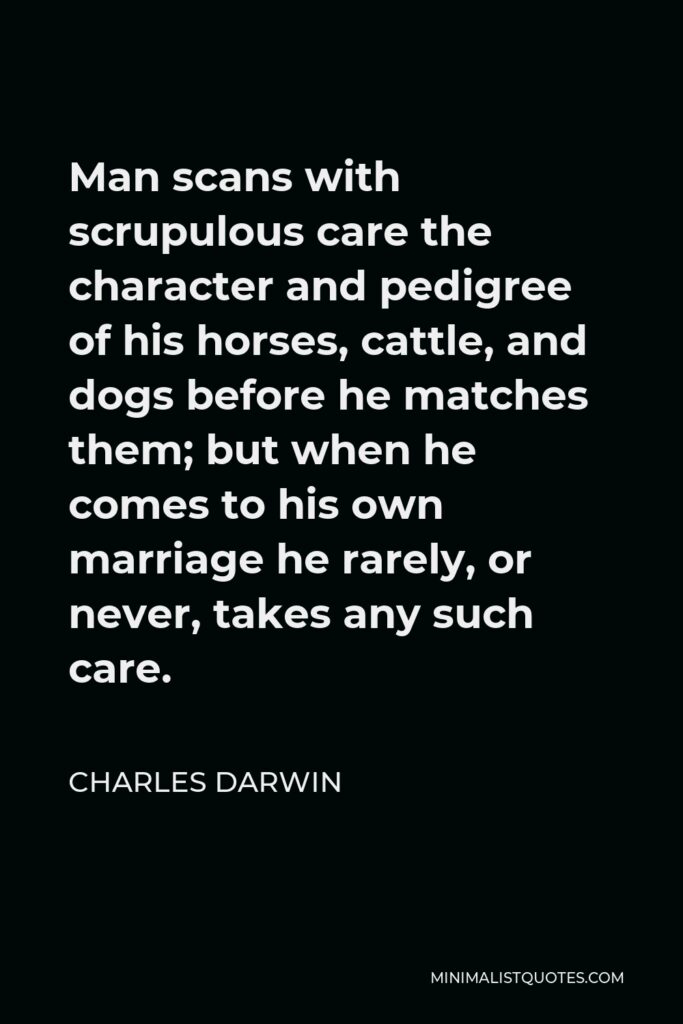

Man scans with scrupulous care the character and pedigree of his horses, cattle, and dogs before he matches them; but when he comes to his own marriage he rarely, or never, takes any such care.
CHARLES DARWIN -





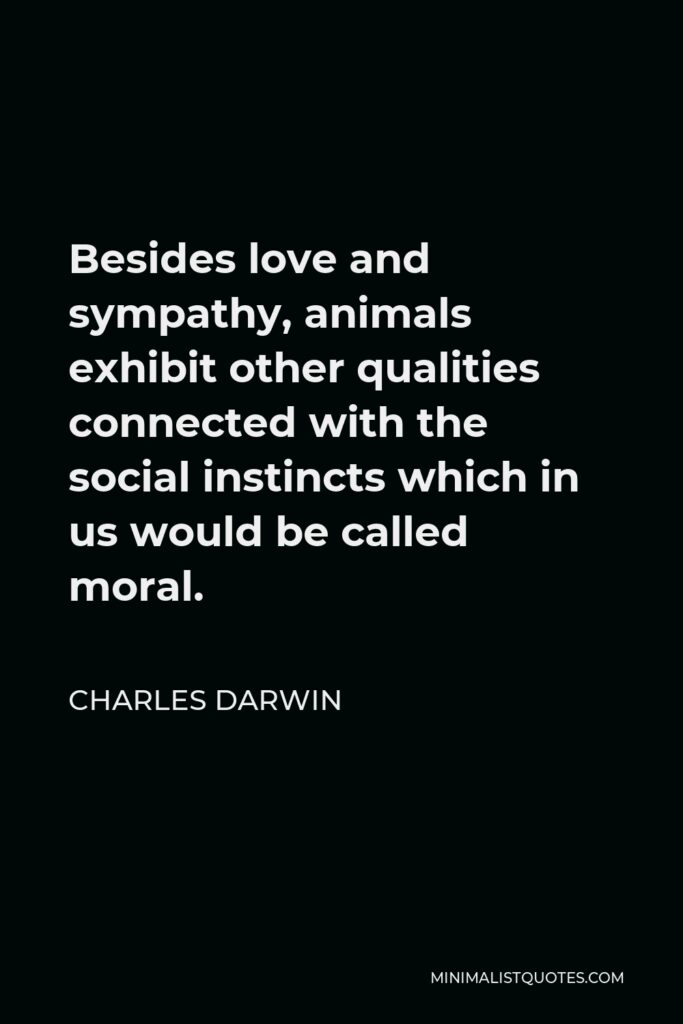

Besides love and sympathy, animals exhibit other qualities connected with the social instincts which in us would be called moral.
CHARLES DARWIN -





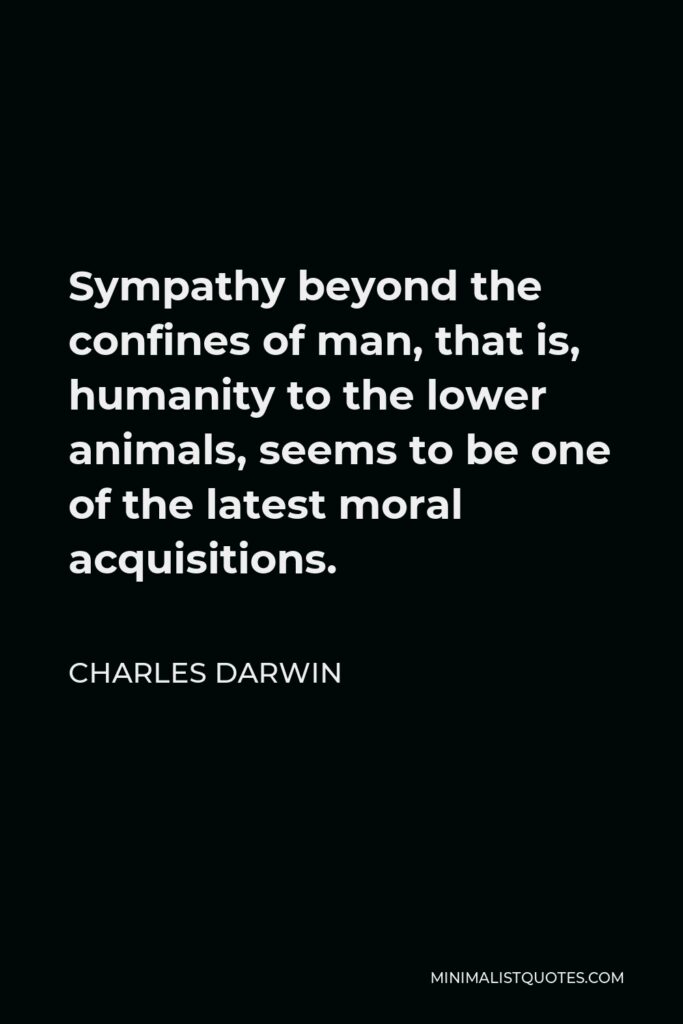

Sympathy beyond the confines of man, that is, humanity to the lower animals, seems to be one of the latest moral acquisitions.
CHARLES DARWIN -





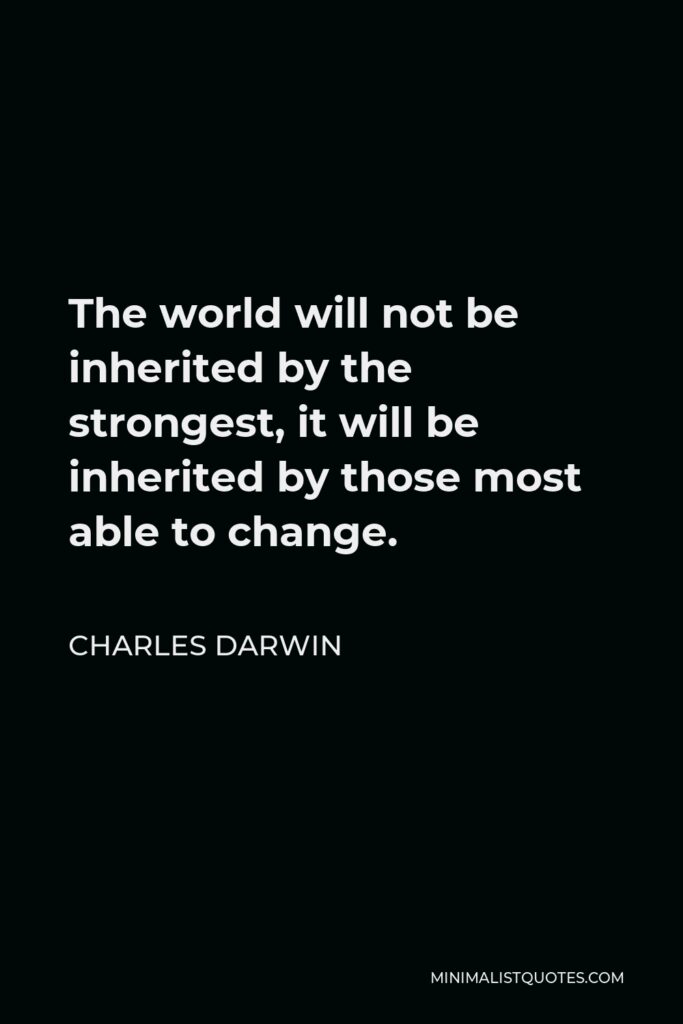

The world will not be inherited by the strongest, it will be inherited by those most able to change.
CHARLES DARWIN -





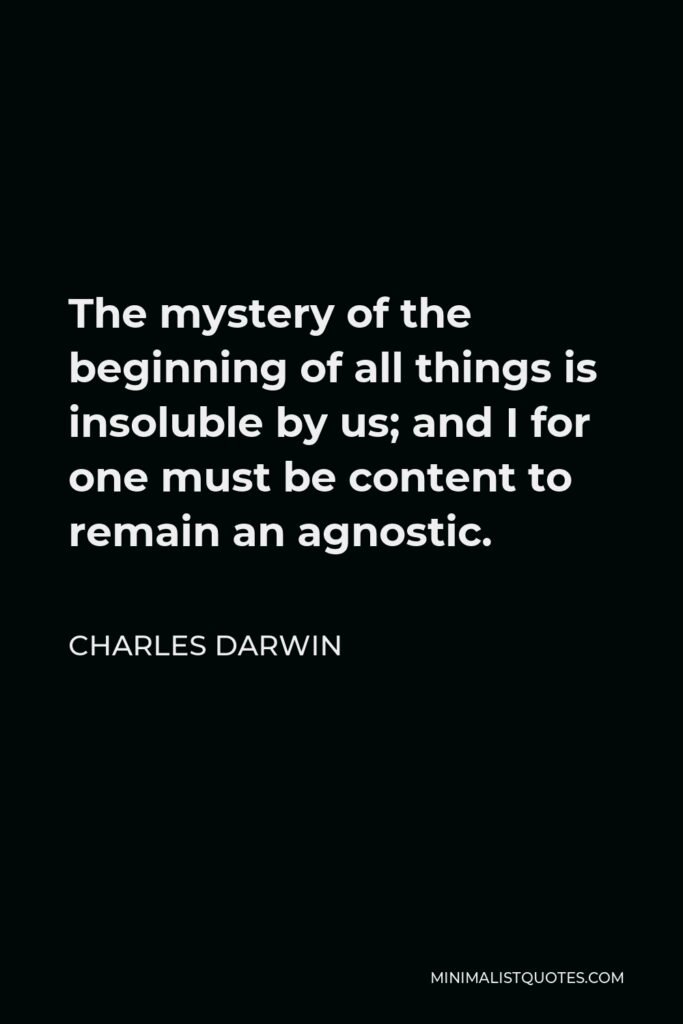

The mystery of the beginning of all things is insoluble by us; and I for one must be content to remain an agnostic.
CHARLES DARWIN -





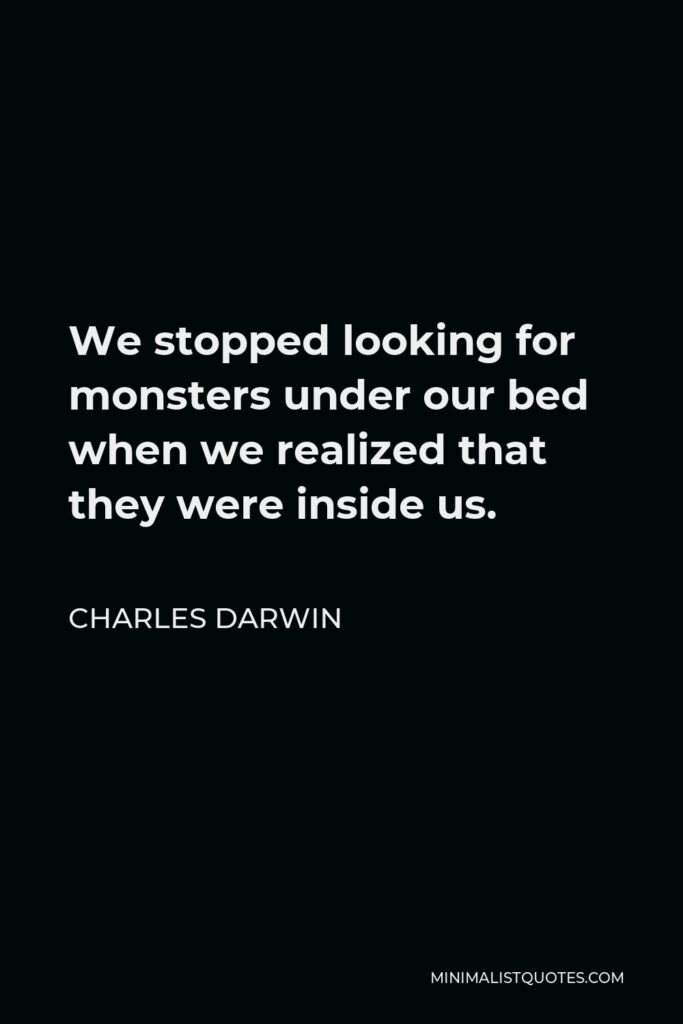

We stopped looking for monsters under our bed when we realized that they were inside us.
CHARLES DARWIN -





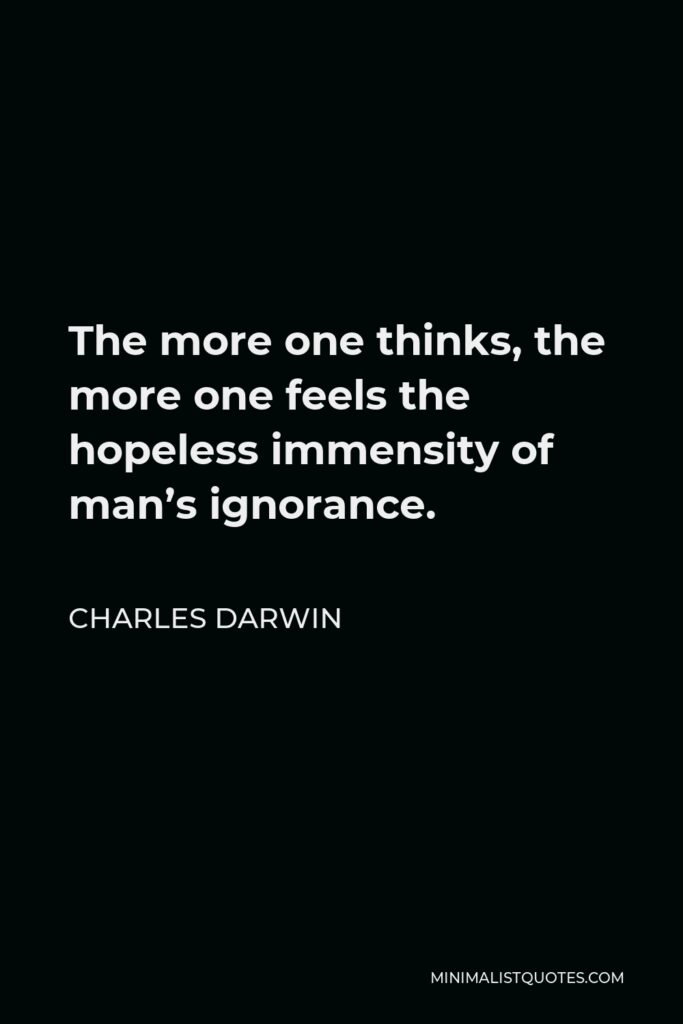

The more one thinks, the more one feels the hopeless immensity of man’s ignorance.
CHARLES DARWIN -







Only picture to yourself a nice soft wife on a sofa with good fire, & books & music.
CHARLES DARWIN -







For the shield may be as important for victory, as the sword or spear.
CHARLES DARWIN -





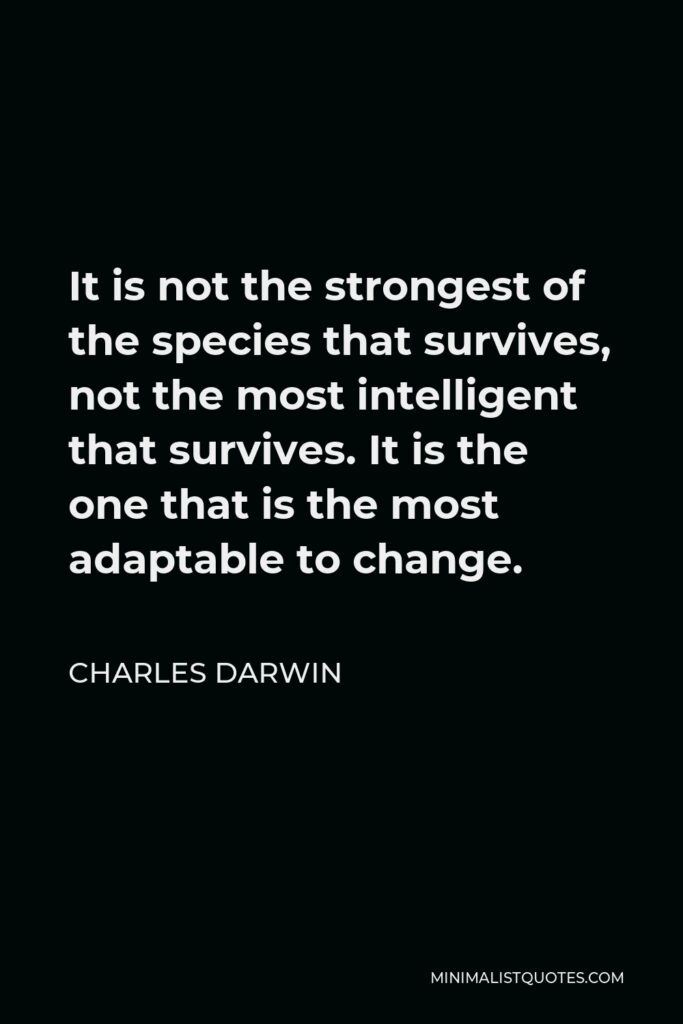

It is not the strongest of the species that survives, not the most intelligent that survives. It is the one that is the most adaptable to change.
CHARLES DARWIN -





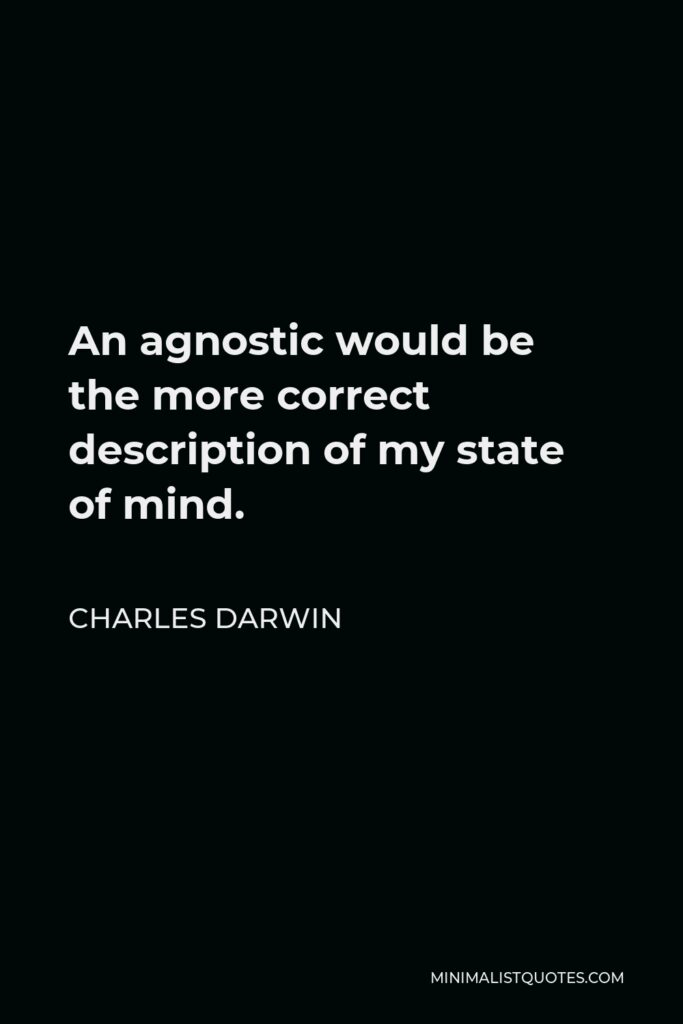

An agnostic would be the more correct description of my state of mind.
CHARLES DARWIN -





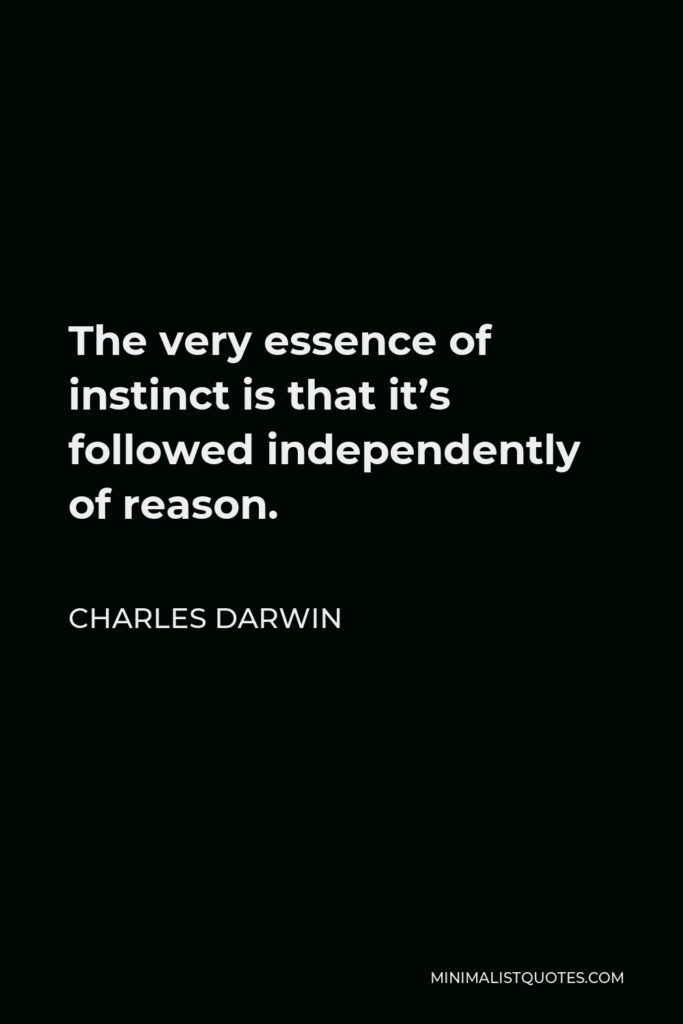

The very essence of instinct is that it’s followed independently of reason.
CHARLES DARWIN -





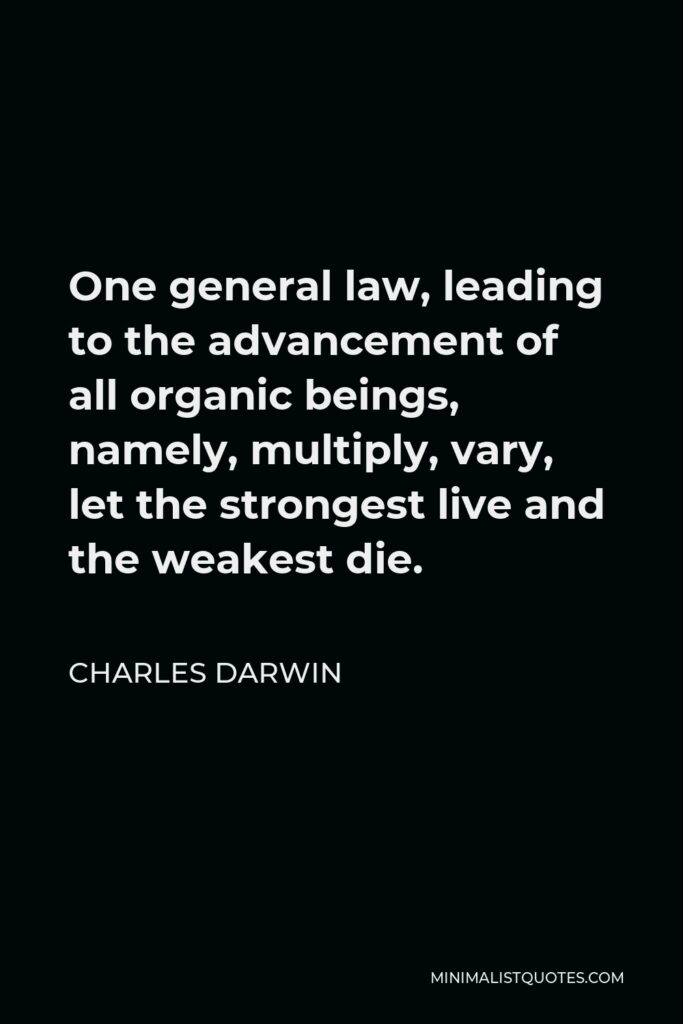

One general law, leading to the advancement of all organic beings, namely, multiply, vary, let the strongest live and the weakest die.
CHARLES DARWIN -





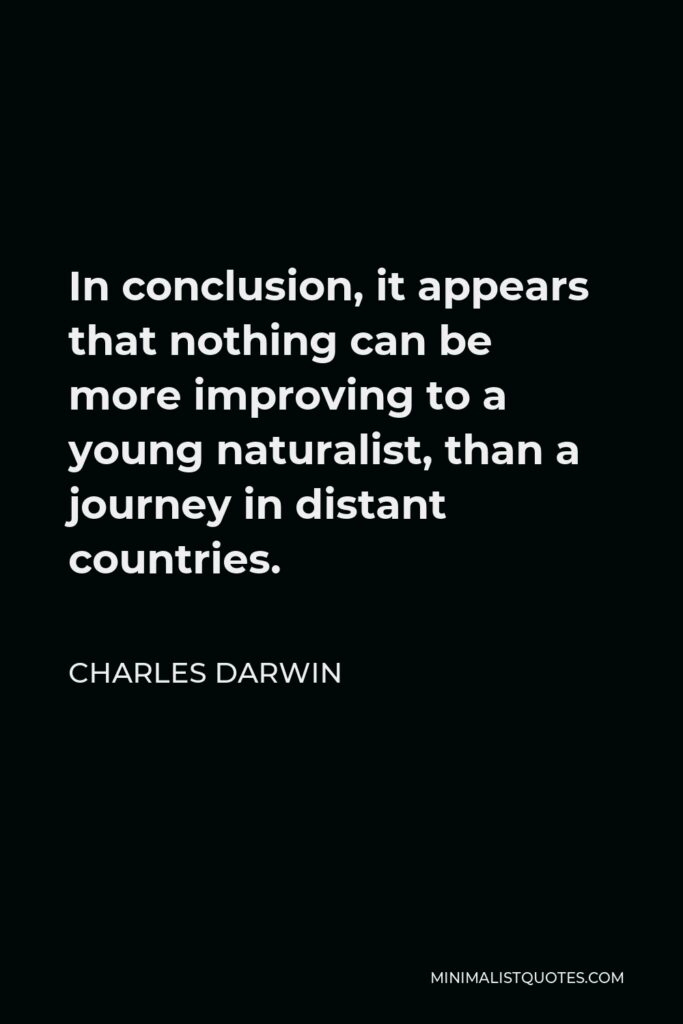

In conclusion, it appears that nothing can be more improving to a young naturalist, than a journey in distant countries.
CHARLES DARWIN
